The organization’s mission is to provide long-term relief for those impacted by the war.
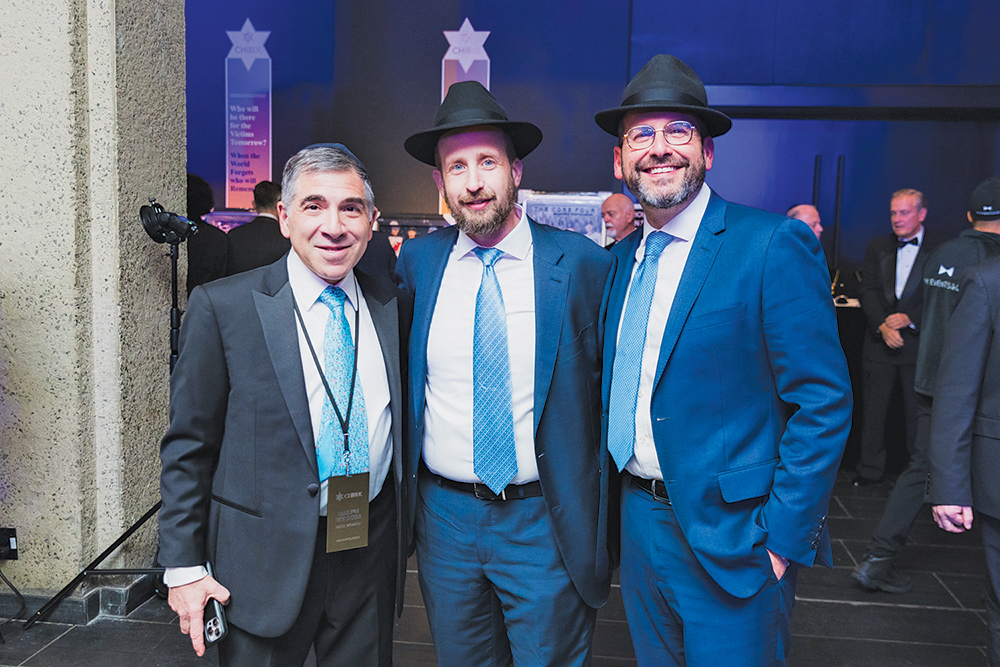
(Courtesy of Chibuk) As the aftermath of the Oct. 7 attack has seen a surge of support for the affected families, some have wondered: what is the long-term future of those left shattered by the tragedy? Who is going to address the long-term needs of the orphans, the families and the injured soldiers?
Yes, in the face of the immediate crisis, good-hearted yidden have stepped up to address the pressing needs. But beyond the initial outpouring of sympathy and aid, what awaits these families down the road? Who will help these families navigate life milestones? Will they just be left on their own?
The answer is Chibuk.
Chibuk is an organization whose vision extends beyond the present moment, recognizing the inevitable passage of time, acknowledging that the memory of the tragic day may fade from public consciousness. The plight of the 40+ children orphaned from both parents, the impacted families, the injured soldiers and others cannot be consigned to oblivion.
Something must be done.
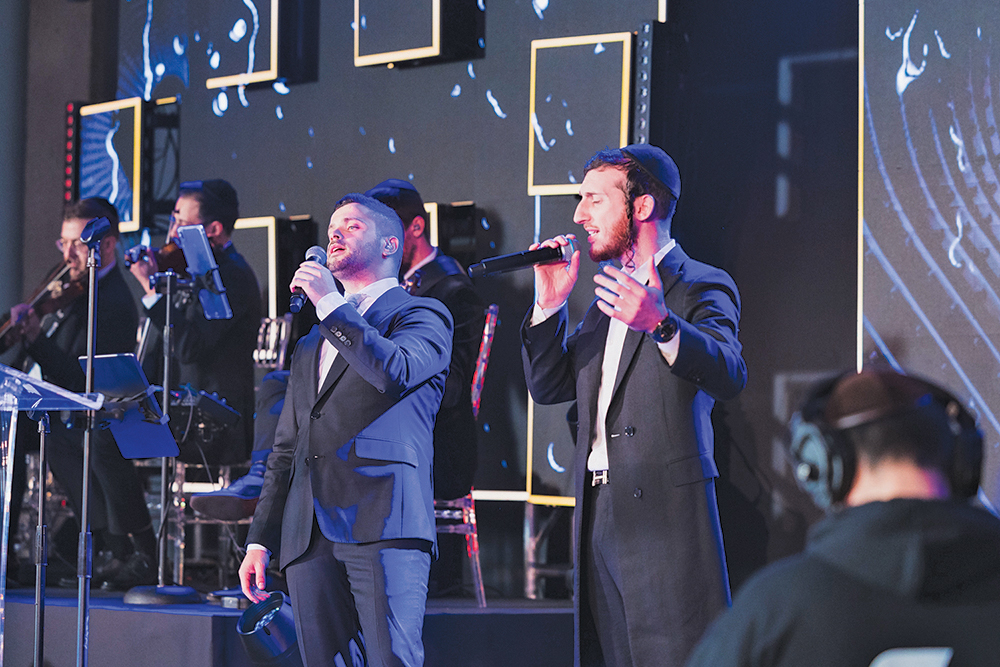
The heart of Chibuk’s mission lies in its commitment to raising funds for the myriad needs that await the affected families in the years to come. The organization is a guardian of the future, a steadfast ally ensuring that the orphans and others have the means to celebrate significant life events, pursue education and build a stable and secure life for themselves.
Teaming up with organizations such as Am Echad, Migdal Ohr, Sulamot, Unity in Action, Yad Eliezer, and Yad Sarah, Chibuk is creating a safety net, a financial and emotional support system that remains steadfast even as the world around these families moves forward.
In support of Chibuk’s mission, a fundraising event was recently held at Bell Works in Holmdel, New Jersey. Titled “An Evening of Embracing the Victims of Terror in Israel,” the gathering was ably chaired by emcee Nachum Segal and hosted by Ralph Zucker, Yochi Herzog, Jeff Weiskopf and Miles Berger.
“We know that kol Yisroel areivim zeh lazeh,” said Zucker. “We are one people. One family. Together, we can make a lasting impact on the lives of those affected by the tragedy of Oct. 7.”
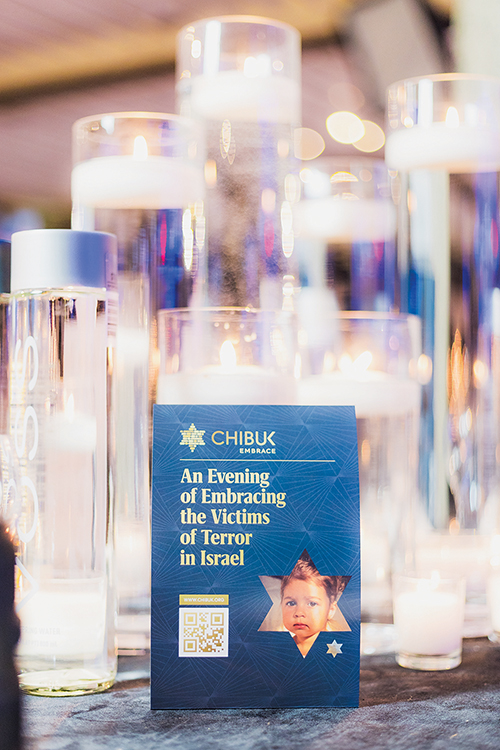
“We are not seeking to reinvent the wheel,” said Weiskopf. “Recognizing the importance of efficiency and collaboration, we carefully selected charities that complement each other in their missions. These chosen organizations already possess established infrastructure, ensuring that our support can seamlessly integrate with their existing efforts. We have partnered with charities that uphold high standards of openness and accountability, providing clear accountings of how funds are utilized.”
“In times of adversity, klal Yisroel comes together,” said Herzog. “Chibuk serves as the medium through which Jews around the world can do something to make a difference for our brothers and sisters whose lives will never be the same again.”
“In moments of hardship, the unity of the Jewish people shines through,” said Berger. “There’s nothing like it in the world. Through Chibuk, we can turn our collective strength into meaningful support and solace.”
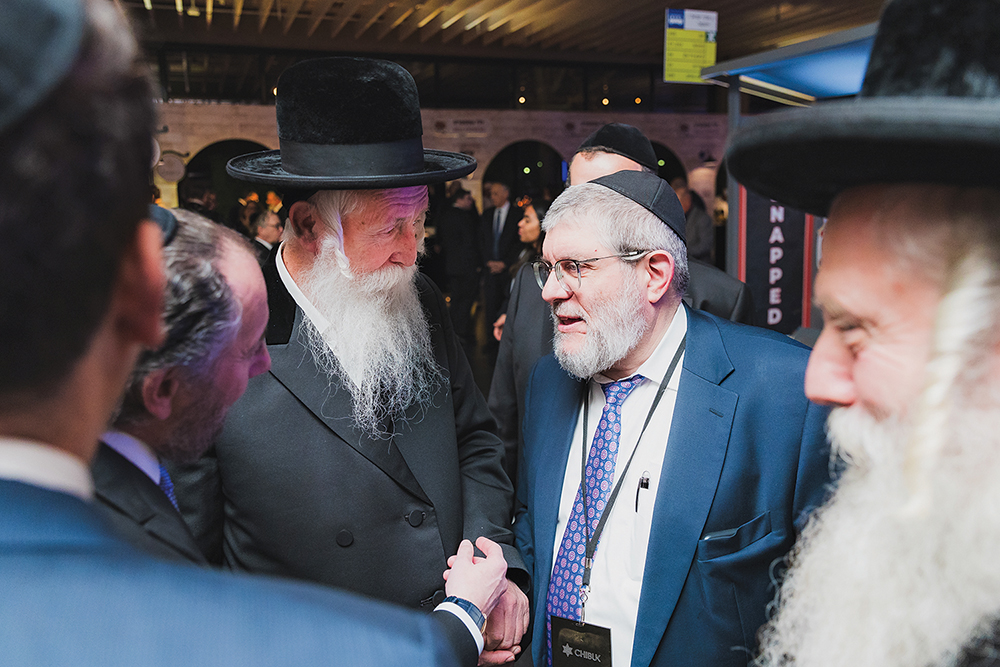
Nachum Segal, in his opening remarks, commented, “How anxious are we to give a hug, a chibuk, to the soldiers, the civilians, the families, the victims, the hostages, all of our brethren, in Israel and in the hands of the enemy? And we want to do this every day, during this war and beyond.”
Following the recital of Tehillim and an opening song by Shulem Lemmer, attendees heard from a special guest, Rav Yitzchak Dovid Grossman, chief rabbi of Migdal HaEmek and founder and dean of Migdal Ohr institutions. Grossman reminisced about his youth and the many wars that Israel has battled from which each time the tiny Jewish country emerged miraculously.
“The greatest gift to Hashem is to show Him that you care, that you love His children,” he remarked. Reflecting on Oct. 7, Grossman said, “The question is: What does Hashem want from us?
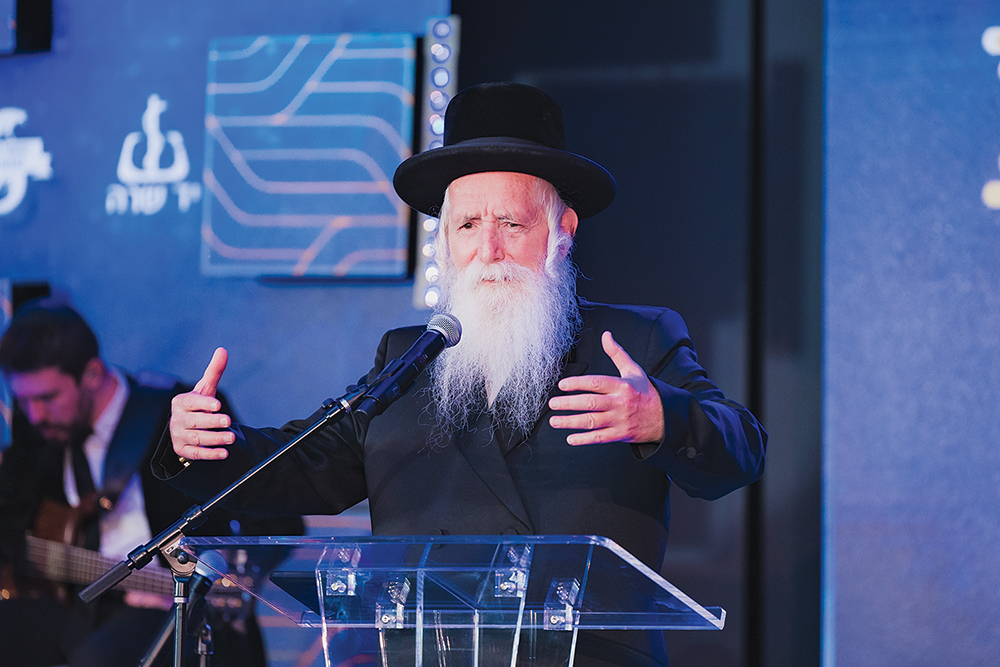
“In this moment,” he explained, “everyone is helping and everyone is doing, baruch Hashem. But what will be in a year, in two years, in three years? Who will take care of them? Who will make the boys their bar mitzvahs? Who will buy them clothing? Who will make their weddings? Who will give them a home?”
That, he said, is the focus of Chibuk.
Phillip Bendheim, director of the national board of trustees for Yad Sarah, Israel’s largest non-governmental social and healthcare service provider, spoke next, describing the life-changing work of Yad Sarah by aiding thousands of soldiers and citizens injured in the war.
Lemmer and Itzdik Dadya then put on a special performance of the song “Shvurei Lev,” leaving not a dry eye in the room.
Yerushalayim resident Chana Irom of Unity in Action addressed the event next, describing the impact of the current war. “Three hundred thousand families were evacuated … You look into these people’s eyes and you understand what exile is. They left their homes without knowing if they’re ever going to go back. Some of their homes were destroyed. One hundred and fifty thousand of them were placed in hotels, and 150,000 of them were searching for houses, for people who can host them.”
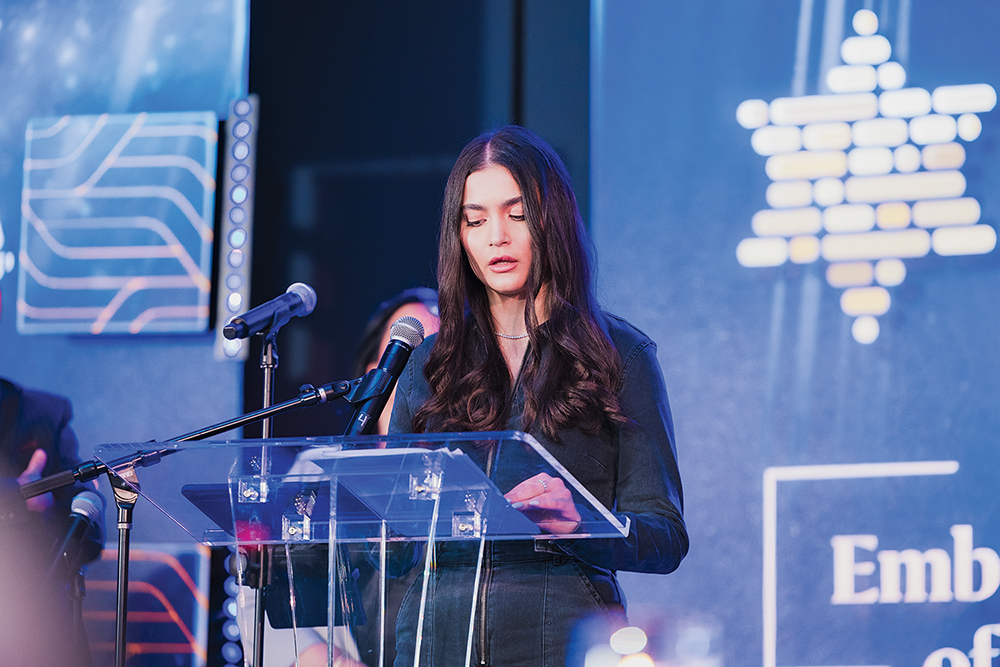
IDF First Lt. Eden Ram was shown on video describing how she was stationed at the Urim Southern District Base with 12 other soldiers when they were ambushed by terrorists, with the gunmen shooting Ram in the leg just as she reached the base’s operations room. After the video concluded, Ram came out onto the stage with her mother, Osnat Ram, and addressed the crowd, sharing memories of the attack in Gaza that almost claimed her life.
In harrowing detail, Ram described being trapped, the injured soldier and six comrades in arms finding themselves in a helpless predicament. They had no choice but to bide their time until Hamas forcefully breached each security door, ultimately reaching the IDF troops. Upon reaching them, Hamas unleashed a barrage of gunfire, leaving the soldiers with no means of escape.
“Throughout this, I was not sure if I was dead or alive,” she said about the moment after 12 bullets struck her body. “I felt dead, but I could still see and hear and feel. I waited for the final bullet that would hit and kill me, but it never came.”

Eden waited four hours in horrible pain before soldiers arrived to rescue her. She underwent intense rehabilitation and went from not being able to walk at all to living a normal life — a true miracle. “I thank God for protecting me,” she said. “I do not take my surviving for granted. Not only am I alive, but I have made a full recovery. It’s a miracle.”
Ram concluded her remarks to a round of applause and then her mother addressed the audience, depicting the events of the last few months from her vantage point.
Reuvain Pool of Unity in Action then spoke briefly before Lemmer performed a song titled “When You Believe.”
Rabbi Shlomo Farhi, senior rabbi of the Edmond J. Safra Synagogue in New York City and founder of Chazak International, delivered impassioned remarks. “There are many organizations doing many wonderful things,” he said. “But that is today. Love means caring about tomorrow …
“If our soldiers, police officers, first responders, and Hatzolah members can give their lives for the Jewish people and our families, we must honor that sacrifice and take care of theirs — their wives, their children, those sons and those daughters. We must take responsibility because we have responsibility. We can and they no longer can,” he added.
Farhi continued, “The word responsibility in lashon hakodesh is achrayus, because in responsibility there is no achrayus if there is no achar after. Responsibility means taking care after — not just now, not just today, not just for the need that presents itself, not just what they’re asking for, but what they need and what they will need.”
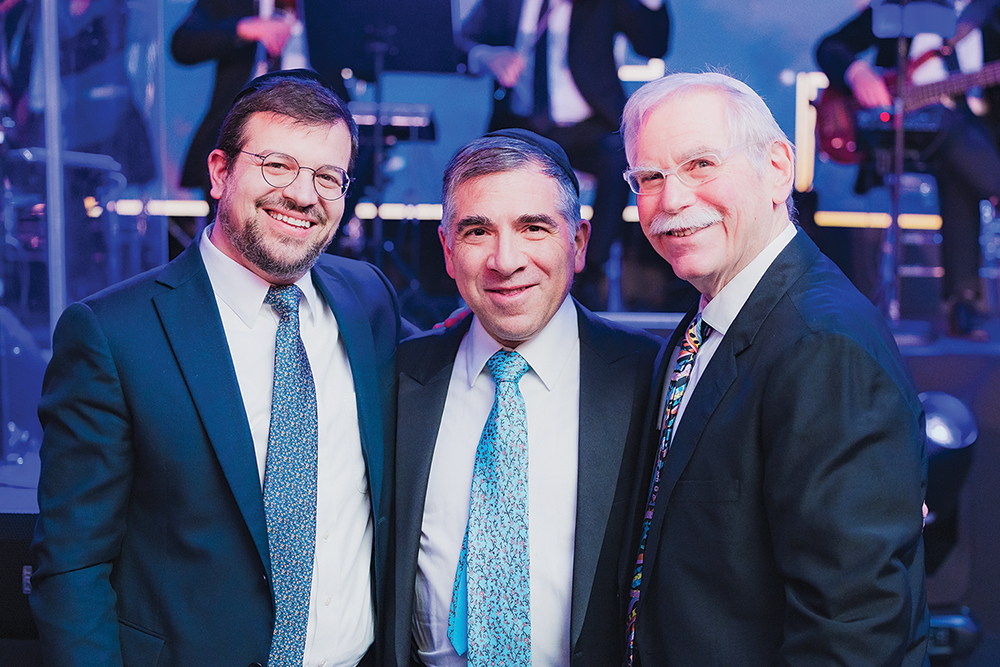
Farhi concluded with a message that encompassed the goal of Chibuk, remaining steadfast in its commitment to the families in need, ensuring that the families impacted by Oct. 7 and the current war are never forgotten.
“Tonight we step in. We step up. We adopt them as our own. Let us give them that hug, that chibuk, and let them know that we are not about to go anywhere.”
For more information about Chibuk, email info@chibuk.org or call (212) 744-3071.








